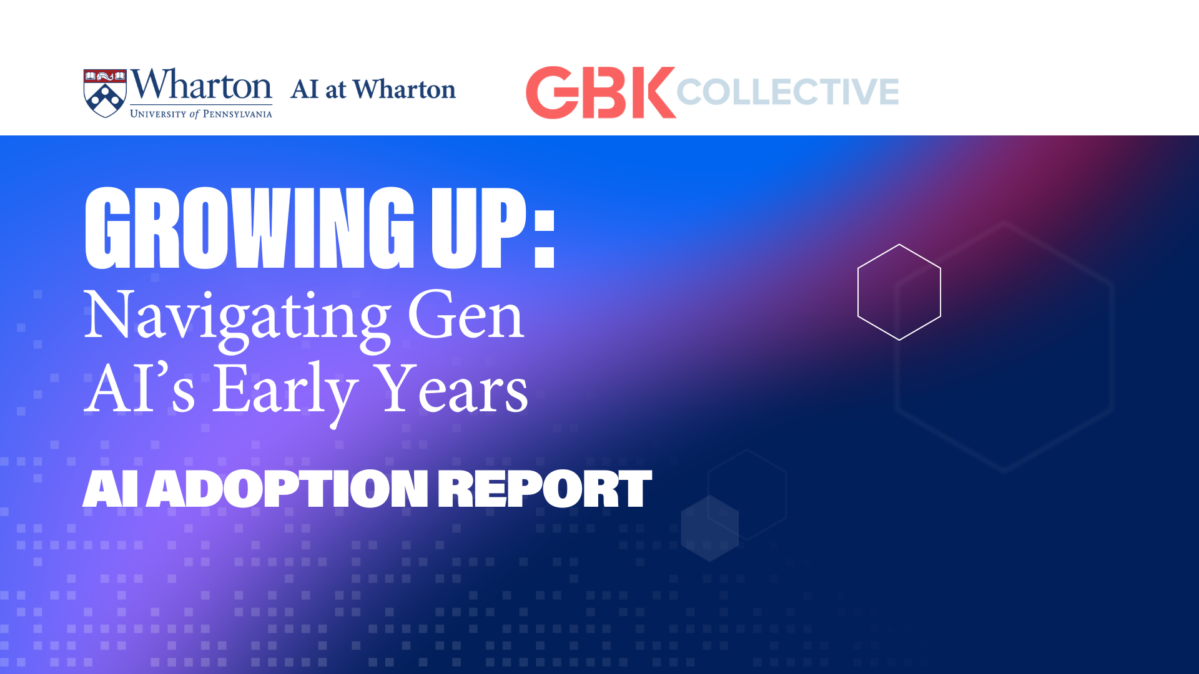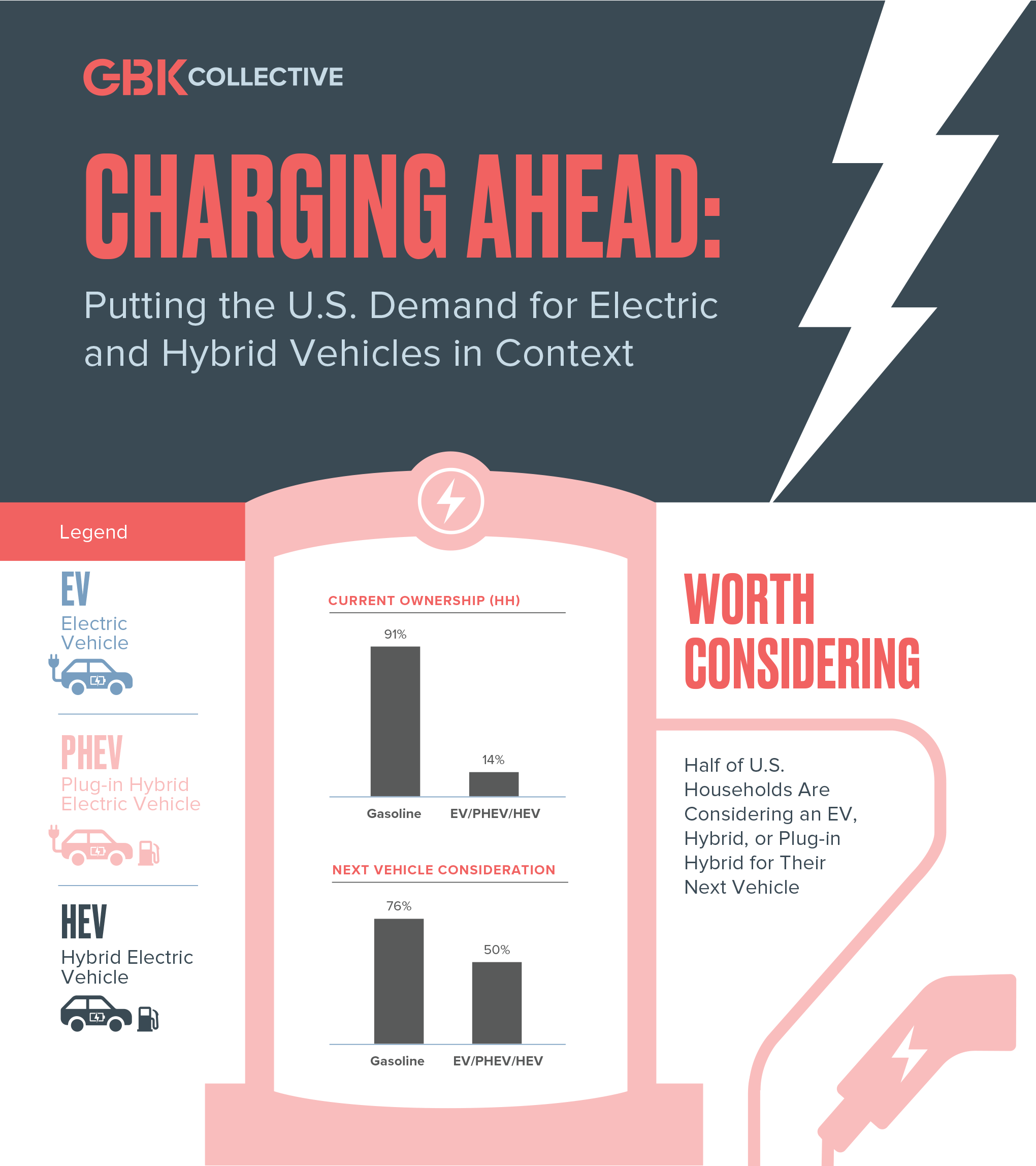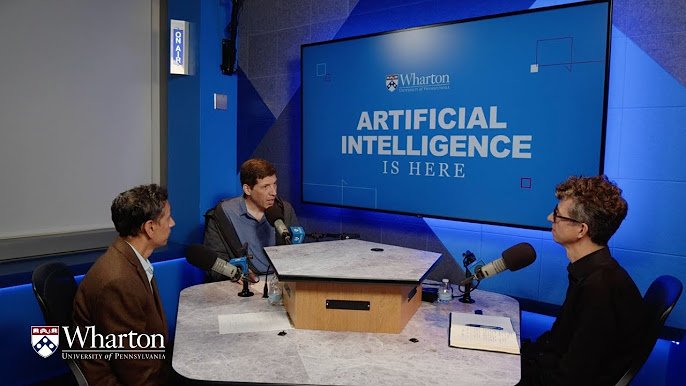High definition wisdom
Our collective perspectives and ideas.

How Gen AI Is Reshaping Marketing Research: Insights from GBK Collective’s Latest Study
How Gen AI Is Reshaping Marketing Research: Insights from GBK Collective’s Latest Study

Unlocking Gen AI’s Potential – With AI at Wharton
GBK Collective Partner Jeremy Korst shares key takeaways from Wharton’s AI Horizons webinar series and GBK’s latest report, “Growing Up: Navigating Gen AI’s Early Years” developed in collaboration with AI at Wharton, a research center at the Wharton School of the University of Pennsylvania. Together with co-authors Wharton Professor Stefano Puntoni, Faculty Co-Director of AI at Wharton, and Mary Purk, formerly with of AI at Wharton, this blog post discusses the rapid acceleration of Gen AI adoption, emerging use cases, and its transformative impact on marketers. The conversation included actionable insights for marketers on scaling Gen AI, safeguarding data, driving measurable ROI, among other topics.

Growing Up: Navigating Gen AI’s Early Years
Today GBK is excited to announce the release of our latest report, Growing Up: Navigating Gen AI’s Early Years, developed in collaboration with AI at Wharton, a research center at the Wharton School of the University of Pennsylvania. Based on a survey with 800 senior leaders from top U.S. enterprises (each with sales over $50M), the report reveals just how rapidly Generative AI (Gen AI) adoption and use cases are accelerating.
The comprehensive study charts the evolution of Gen AI—from its infancy and initial experimentation to now intense focus by enterprises on delivering tangible ROI with more practical use cases and applications. As a second wave to our initial report last year, it offers a deeper perspective than most studies: sharing valuable year-over-year insights on adoption and level of investment by company size, industry and functional area, emerging applications, as well as overall sentiment by business leaders on Gen AI.

Q&A with Dr. Kevin Lane Keller, Renowned Brand Strategy and Marketing Management Expert
In GBK’s latest Q&A, best selling author Kevin Lane Keller, E. B. Osborn Professor of Marketing at the Tuck School of Business at Dartmouth College, shares insights on what goes into building a successful brand strategy. The Q&A also explores how marketing and brand measurement have evolved, the importance of segmentation, along with advice for CMOs and marketers to maximize the value of their brand.

Generative AI’s Impact on Customer Experience and Decision-making with Wharton's Stefano Puntoni
Wharton Professor, Director of AI at Wharton, joined the Modern Customer podcast with Forbes columnist Blake Morgan today to discuss GBK’s recent study, The Rise of Generative AI in the Enterprise.
Among the topics explored in the episode: how will generative AI impact customer experience and marketing, what adoption and usage trends are we seeing, and why firms need to take a more strategic approach when applying gen AI and data to decision making.

GBK Infographic Provides Snapshot of EV, Hybrid Consideration by Consumers
Are Americans ready for an all-electric future? This infographic tells the story behind GBK Collective’s latest study exploring EV and hybrid demand and adoption trends.
Based on a survey with over 2,000 U.S. consumers, the study examines the shifting profiles of EV and hybrid buyers, consideration by brand and vehicle type, average budget consumers are willing to spend on their next vehicle, key adoption drivers and barriers, and much more.

Forget The Hype. Here’s What Enterprises Are Actually Doing with Generative AI
GBK President Jeremy Korst shares key takeaways from his conversation with Stefano Puntoni, Professor of Marketing at The Wharton School and Faculty Co-Director of AI at Wharton, and Forbes columnist Adrian Swinscoe on the Punk CX podcast.
Jeremy and Stefano share the results of GBK’s study on “The Rise of Generative AI Across Enterprises”. Among the questions we explored in the episode: what are the biggest use cases and emerging applications for generative AI? How will it affect the future of work? What are the biggest concerns or barriers to adoption? And finally, what guardrails should leaders put in place as they apply generative AI with their teams?

New GBK Study Reveals Half of U.S. Households Considering EV or Hybrid for Their Next Vehicle
Are U.S. automotive consumers ready for an all-electric future? GBK Collective's latest study, in partnership with Wedbush Securities Managing Director Dan Ives and automotive industry expert Brent Dewar, examines the current state of EV ownership and consideration, the shifting profiles of EV and hybrid buyers, and the key opportunities for the industry

Charging Ahead: Putting the U.S. Demand for Electric and Hybrid Vehicles in Context
Charging Ahead: Putting the U.S. Demand for Electric and Hybrid Vehicles in Context

Beyond Binary: Why Null Hypothesis Significance Testing Should No Longer Be the Default for Statistical Analysis and Reporting
Null hypothesis significance testing (NHST) is the default approach to statistical analysis and reporting in marketing and, more broadly, in science. Despite its default role, however, NHST has long been criticized by both statisticians and applied researchers, including those within marketing.
The most prominent criticisms relate to NHST’s dichotomization categorization of results as “statistically significant” versus “statistically nonsignificant.” This binary treatment of results, using p-values or otherwise, loses information, can be misleading, and prevents meta-analyses which is what science is really all about!
In a new article published in The Journal of Marketing, my colleagues Blakeley B. McShane, John G. Lynch, Jr., Robert Meyer, and I propose a fundamental shift in statistical analysis and reporting in marketing and beyond. In fact, we propose abandoning NHST as the default approach altogether as statistical (non)significance should never be used as a basis to draw conclusions, or as a filter to select what data to prioritize when making decisions.

Beyond Big Data: The Indispensable Role Qualitative Research Plays in Marketing Strategy
In an era where companies are inundated with data, investing billions annually in analytics and technology, understanding the “why” behind customer behavior has never been more important.
From initial consideration to point-of-sale and post-purchase reactions, brands have more data on the customer journey than ever before. This has led many marketing and product leaders to incorrectly believe that they no longer need to invest in primary, qualitative research given the plethora of CRM, transactional, and other data already available to them. This couldn’t be further from the truth.
In this blog post, we discuss the indispensable role that qualitative research plays as a stand-alone methodology or part of a powerful qual/quant combo in better-predicting customer behavior and shaping marketing strategy.

The Impact of Generative AI on Media and Entertainment: Insights from Dr. Anthony Palomba
We're in the early stages of arguably one of the most transformative technology trends ever with the emergence of generative AI. Not only is it making a significant impact on consumer insights, marketing, and analytics – our core focus at GBK Collective – it's also reshaping roles across industries.
In this blog post, I discuss how generative AI is transforming the media and entertainment industry with insights from GBK Advisor Dr. Anthony Palomba, Assistant Professor at the University of Virginia Darden School of Business, who has been working first-hand with Hollywood writers, directors and producers to effectively apply AI models to complement their creative process.

What Is the Future of AI?
What Is the Future of AI?
GBK Co-Founder and Wharton Professor Eric Bradlow, Vice Dean of Analytics at Wharton, shares key takeaways from his recent Wharton “AI in Focus” podcast interview with Wharton Professors Kartik Hosanagar and Stefano Puntoni, Faculty Co-Directors of AI at Wharton. He also touches on some related findings from GBK’s extensive new study on “The Rise of Generative AI Across Enterprises”.
Among the questions explored: What is the future of AI? How is it transforming industries and organizations? How will AI affect the future of work? What role should it play in decision-making for leaders? And what are the best practices for leaders in applying generative AI with their teams?

The Rise of Generative AI Across Enterprises: Insights from GBK’s New Report with Dr. Stefano Puntoni, Director of AI at Wharton
A new study by GBK Collective and AI expert Dr. Stefano Puntoni, Professor of Marketing at The Wharton School and Faculty Co-Director of AI at Wharton, shows that generative AI adoption has reached a tipping point within enterprises. Not only do the majority of enterprise leaders now use generative AI – they are also planning a substantial increase in generative AI investments in the next 12 months.
Conducted with 672 senior leaders from U.S. enterprises, each with annual sales surpassing $50 million, the survey also offers some eye-opening insights on the adoption of generative AI by functional area, emerging applications and use cases by industry, as well as adoption drivers and barriers.

The Rise of Generative AI Across Enterprises
An In-Depth Look at Adoption, Investment, and Emerging Use Cases for Generative AI Across Enterprises

Key Learnings from Sawtooth’s 2023 Analytics & Insights Summit
Key Learnings from Sawtooth’s Analytics & Insights Summit
I was fortunate to recently attend Sawtooth's Analytics & Insights (A&I) Summit, where leading analytics professionals discussed new research and shared some of the latest methods and applications of consumer insights and marketing science.
This year’s conference did not disappoint! Below I share some of the key takeaways and themes from the event, which demonstrate how marketers can apply advanced analytics techniques to better measure consumer preferences and behavior, thereby improving business decision-making and increasing return on marketing investments.

The Future of Marketing Analytics: Highlights from MSI's 2023 Conference
The Future of Marketing Analytics: Highlights from MSI's 2023 Conference
As the Vice Dean of Analytics and Chair of the Marketing Department at the Wharton School, it was great to help host the Marketing Science Institute’s Analytics Conference on campus this year. I really look forward to MSI events as an opportunity to meet with other leading academics and practitioners to discuss the latest analytics methods and their applications. Below, I share some of my takeaways from the most discussed themes from this year’s MSI conference, along with a few areas I was surprised (from a “traditional statistics” perspective) didn’t come up more.

Data Science To The Rescue: Tackling Real-World Problems With Analytics
Data Science To The Rescue: Tackling Real-World Problems With Analytics
Data science has the power to solve real-world problems and create social good. Earlier this week I had the honor of moderating the University of Pennsylvania’s latest Inspiring Impact virtual series. The panel, entitled "Data Science To The Rescue: Tackling Real-World Problems With Analytics” featured Penn faculty experts Dr. Raina Merchant, Prof. Desmond Upton Patton and Prof. Greg Ridgeway, each of whom are harnessing data to solve different problems – from improving health care outcomes to identifying crime patterns to mitigating the risks of social media.
Below, I share some of the key takeaways from our conversation – from the power of predictive analytics to the impact of ChatGBT and generative AI.

More Than a Game: Applying Analytics to Decision Making In Sports and Business (Part Two)
More Than a Game: Applying Analytics to Decision Making In Sports and Business (Part Two)
In part two of our two-part blog series, we discuss key takeaways from Wharton’s recent panel on sports analytics. Topics covered include how to use analytics as a decision-making tool (even when you’re working with incomplete information), the difference between “data driven” and “data informed”, and why “gut instinct” and judgment still matter.

More Than a Game: How Analytics Gives Sports Teams and Brands a Competitive Advantage (Part One)
More Than a Game: How Analytics Gives Sports Teams and Brands a Competitive Advantage (Part One)
In part one of our two-part blog series, we discuss key takeaways from Wharton’s recent panel on sports analytics. Topics covered include the evolution of Moneyball, how leaders across sports and business can use data and analytics as a decision-making tool, and what businesses can learn from sports analytics (and vice versa).
